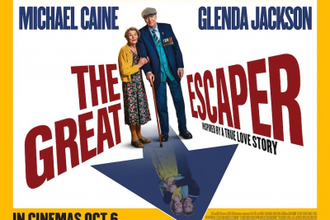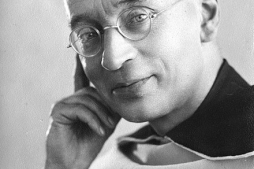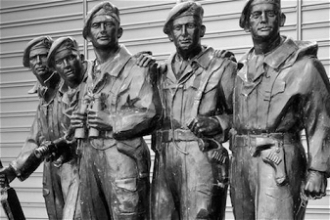London: Polish primate leads World War II Memorial Mass
Cardinal Joseph Glemp, lead a Memorial Mass for the Polish community of England and Wales, to mark the 60th anniversary of the end of World War II, at the Brompton Oratory in London on Saturday.
Cardinal Cormac Murphy-O'Connor, arrived towards the end of the service to give a short address. Archbishop Szczepan Wesoly, Mgr Tadeusz Kukla, head of the Polish Chaplaincy in England and Wales, Fr Andrew Wilcox, representing Archbishop Vincent Nichols, diplomats and representatives of many Polish organisations were among those who attended.
The service began with a procession of ex-combatants carrying banners, Scout groups and young people in national dress. The music was lead by the Ave Verum Polish choir from Croydon, directed by Jerzy Pokert.
Cardinal Glemp started his homily by welcoming all those present. He went on to reflect on the role of the Church in Poland in the aftermath of World War II. The war had been a terrible time for Poland, he said, and "the liberation had not been what we had expected or worked for." At the end of the war Poles had four options, he said. These were to actively carry on the fight against the new regime (as they had fought the Nazis). A second course of action was to go abroad or stay abroad. Another was to "live with the situation." Or finally, the Cardinal said, Poles could carry out an active, underground (but non-violent) opposition to the regime. This was the position the church took, he explained, and many suffered as a consequence. Cardinal Wyszinski was to spend three years in prison for his faith. The Vatican Council had been very influential. It was more than just a change of liturgy, he said: "it meant a change, a renewal of the spirit of the church in the world."
The Millennium of Christianity in Poland in 1966, had been a major event and helped strengthen the Church there. Then the election of Cardinal Woytila as Pope was a great turning point and an inspiration. The Cardinal said: "Like so many Poles, Pope John Paul II travelled all over the world." Recalling how he himself had recently been in Moldova for the blessing of a newly-restored memorial obelisk of General Zolkiewski (who defended Europe against Moorish invaders in the 17th century) and had also recently visited the Katyn memorial in Gunnersbury Cemetery, he said: "These all serve as tangible links between the past and present."
"They show how Poles have always fought to defend freedom and faith." The Cardinal praised the Polish community here "who are keeping the faith and bringing up their children in the same spirit." He said he was happy to see the banners of the veteran combatant associations, but was also encouraged to see the flags of the youth groups - who represent the future.
At the end of the service, Cardinal Cormac Murphy-O'Connor gave a short address. That morning, he explained, he had ordained a young Polish priest for Westminster. He said: "Last time I saw Cardinal Glemp was at the funeral of our beloved Pope John Paul II. We all miss him him very much. Praising Polish people who settled in Britain, he said: "You have been such a blessing. How welcome you are. Your faith is an enrichment to faith of the church." He added: "I love your singing. I want you to teach our congregations how to sing."


















